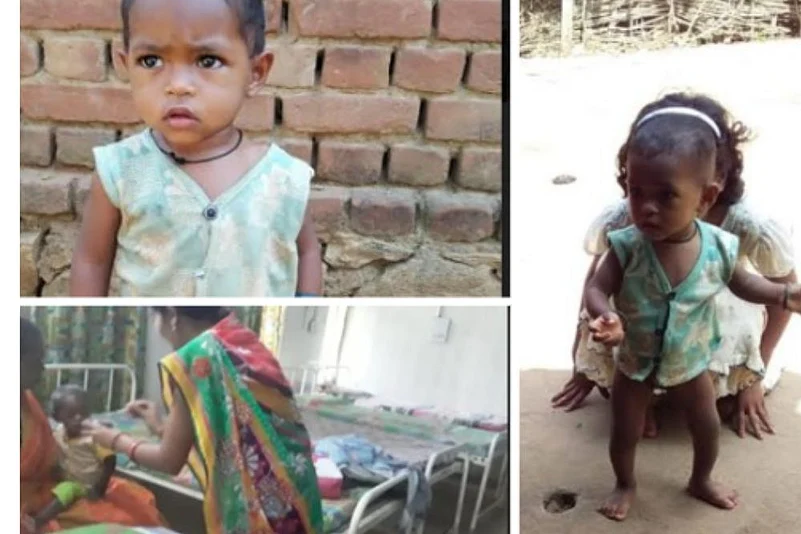The Integrated Child Development Services (ICDS) Scheme is one of the Indian government’s flagship programs for early childhood care. Launched in October 1975, it is one of the world’s largest programs for pregnant women, nursing mothers and children up to six years old, and an attempt to break the vicious cycle of malnutrition, morbidity, reduced learning capacity and mortality.
The services include nutritional advice and help, health care facilities, counseling facilities, free immunization and growth monitoring facilities. A colorful graph divided into green, yellow and orange zones provides visual information about the infant’s growth. Green signifies perfect growth, yellow means there is room for improvement and orange indicates a malnourished child. The ICDS department takes certain preventive measures for children who fall into the orange zone, including providing a special nutrition-rich diet. If that does not work, the child is said to be suffering from Severe Acute Malnutrition (SAM) and admitted to the nearest Nutrition Rehabilitation Centre (NRC).
Advertisement
But though these facilities are completely free of cost, many people belonging to backward or vulnerable sections don’t understand the actual benefits of these services.
For instance, Rani Behera, a 16-month-old girl child of Narottam and Nalini Behera had a birth weight of 2.9 kg, which was good. But she failed to grow as per the coloured chart and started falling into the orange zone, and in January 2020, the local Anganwadi worker, her supervisor and another local body member counselled the parents about providing the correct health care, sanitation and consumption of nutritional food.
Advertisement
In February, during the Village Health and Nutrition Day, following the intervention of local health workers, Rani’s mother took her to the Khamar and Jamaradihi health care camp, where she was given nutritious dry food and a health tonic, and started taking care of her child as per the instructions of the anganwadi workers. On March 2, 2020, Rani’s case was raised at a local committee meeting, and several workers then visited Rani’s house to convince her parents to admit the severely malnourished child to the Khamar NRC.
After a long conversation and lots of convincing by the group, Rani’s parents agreed. Without wasting any time, they took an auto rickshaw and went to NRC with Rani’s family. Rani and her mother stayed at the NRC for 14 days, and after a fortnight of proper nutrition and medical attention Rani’s growth rate gradually increased, and her weight went up from 5.6 kg to 7.3 kg.
“Now, Rani is enjoying her childhood, she likes to play with her friends and she has a systematic eating habit. We are really happy for her,” beams her mother Nalini.
The authors are members of the Angul Pusti Adhikar Abhiyan and work on nutrition in Angul district of Odisha




















